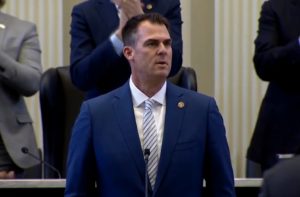California adopts anti ‘body shaming’ policy as half of kids 5-11 are overweight
(The Center Square) – California Gov. Gavin Newsom signed a new bill requiring the creation of a new model policy against body shaming for students in grades 1-12 as the percentage of California…

(The Center Square) – California Gov. Gavin Newsom signed a new bill requiring the creation of a new model policy against body shaming for students in grades 1-12 as the percentage of California children who are overweight or obese rises to 35%.
“While [local educational agencies] are required to have policies about how to handle and address bullying, they are not currently required to have resources to address body shaming, which is not always characterized by bullying,” wrote bill author Assemblymember Josh Lowenthal, D-Long Beach, in an analysis arguing for the measure.
The bill defines “body shaming” as “the action or practice of mocking or stigmatizing a person by making critical comments or observations about the shape, size, or appearance of the person’s body,” and would require the State Department of Education to create a model policy and resources on the matter to post on its website and distribute to local educational agencies by June 30, 2025.
According to the latest 2023 Kids Count Report by the Annie E. Casey Foundation and the State of Childhood Obesity, which both used recently released federal data for 2021, the percentage of California 10-17 year-olds who are overweight or obese lurched from 31% in 2018-19 to 35% in 2020-21, with nearly half of those, or 14.4% of children, considered obese.
However, reports from some experts suggest that federal data does not capture the enormity of the situation. According to a wide-ranging study of Southern California children who were patients of Kaiser Permanente using data from March 2019 through January 2021, the percentage of children ages 5 through 11 who were overweight or obese increased from 36.2% in 2019 to 45.7%.
Studies suggest that declines in independent childhood activity, such as “free play” and recess, are responsible for both children’s rapidly declining mental and physical health, and social-emotional development.
“A primary cause of the rise in mental disorders is a decline over decades in opportunities for children and teens to play, roam, and engage in other activities independent of direct oversight and control by adults. Such independent activities may promote mental wellbeing through both immediate effects, as a direct source of satisfaction, and long-term effects, by building mental characteristics that provide a foundation for dealing effectively with the stresses of life,” wrote the authors of a 2023 paper on children’s mental health in the United States.
Since 2001, average weekly recess has declined by 60 minutes, and only a handful of states require schools to provide children with daily recess. In the same day Newsom announced he signed AB 10, he also announced he signed a new bill by Sen. Josh Newman, D-Fullerton, requiring that California schools provide at least 30 minutes of daily recess on standard school days and 15 minutes on early release days.
“If you’re the parent of a young student, you still have vivid memories of being isolated at home during the pandemic and seeing the social impact this isolation had on them,” said Sen. Newman in a statement sent to The Center Square. “Our children can’t afford to lose any more time in their social and emotional development, and one of the best ways to promote that growth is during the unstructured free time that recess provides. I’m appreciative that my legislative colleagues agreed with this logic, and I’m grateful to Governor Newsom for signing SB-291 into law.”



